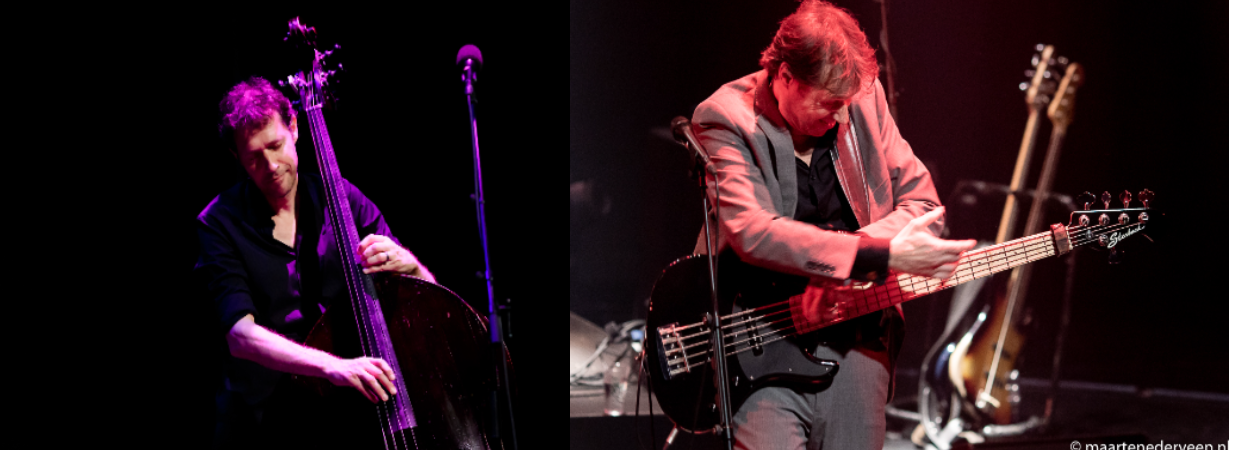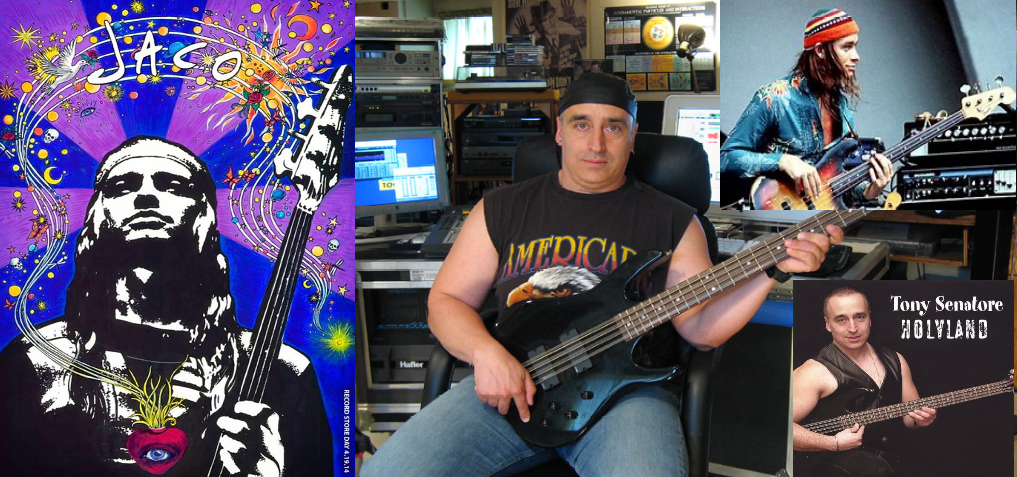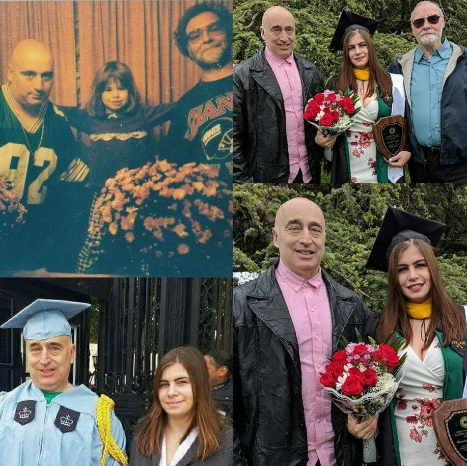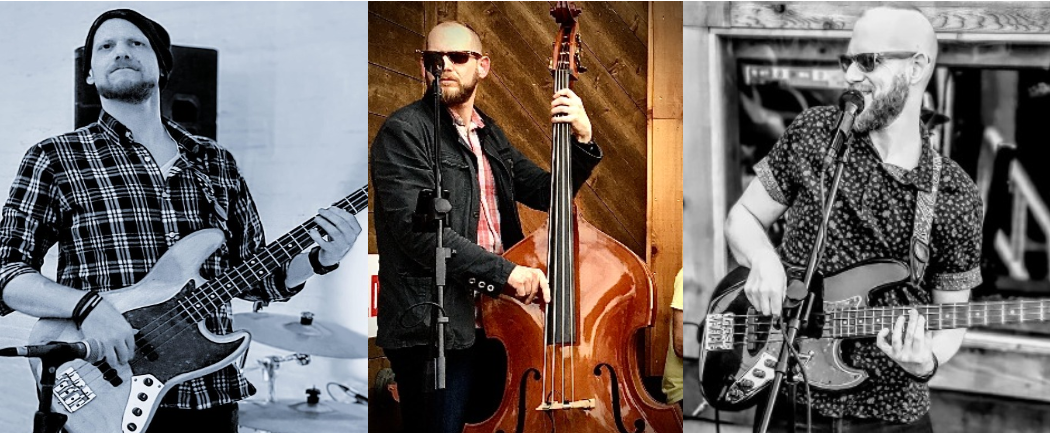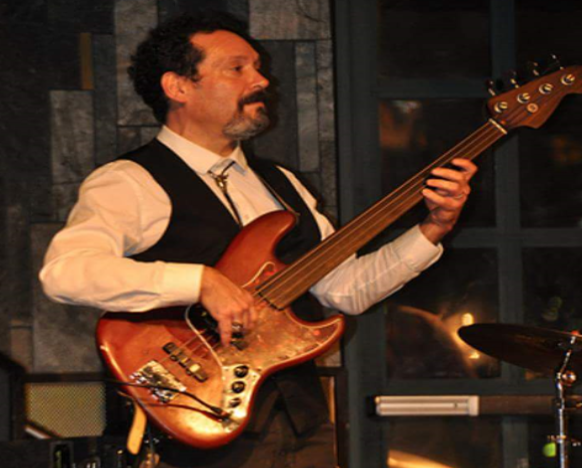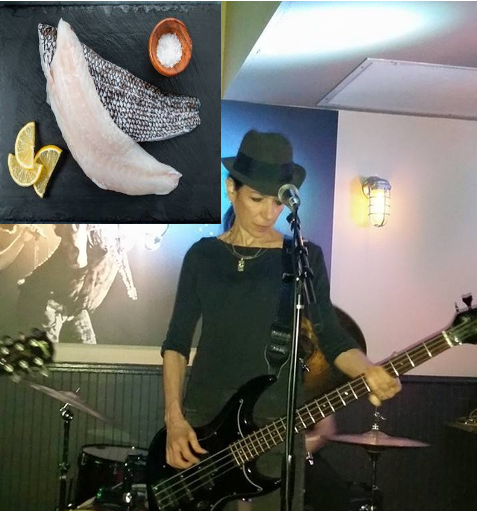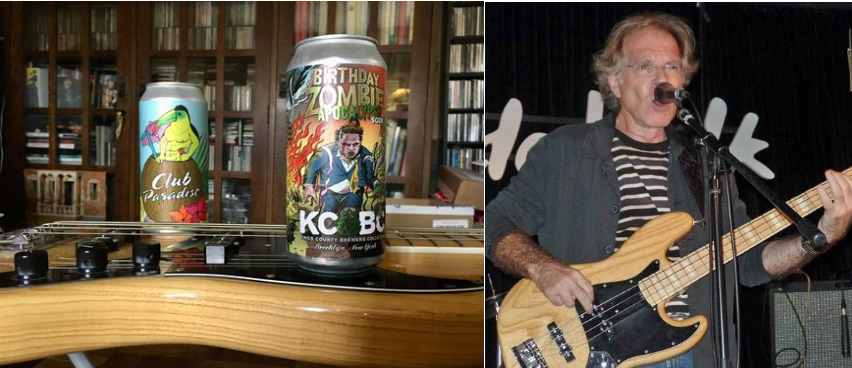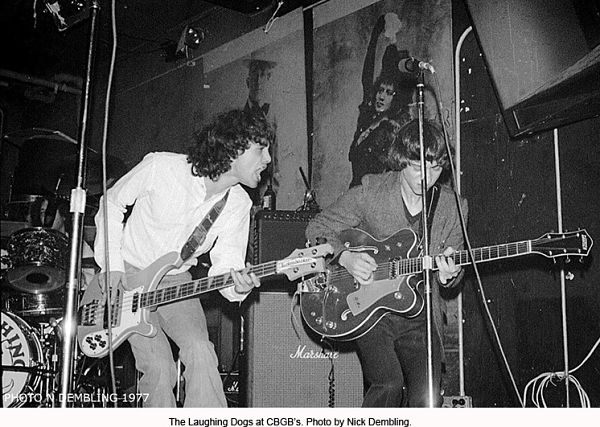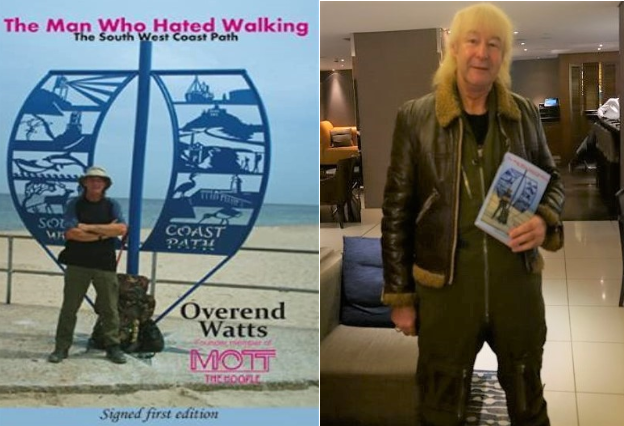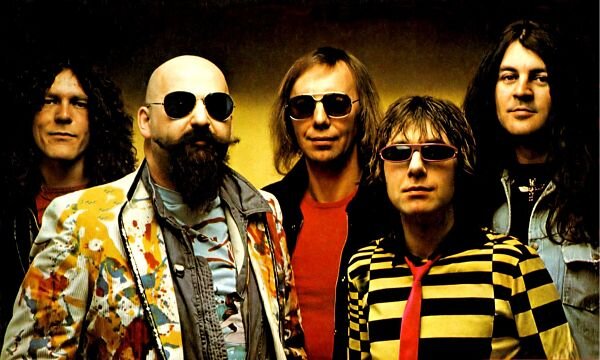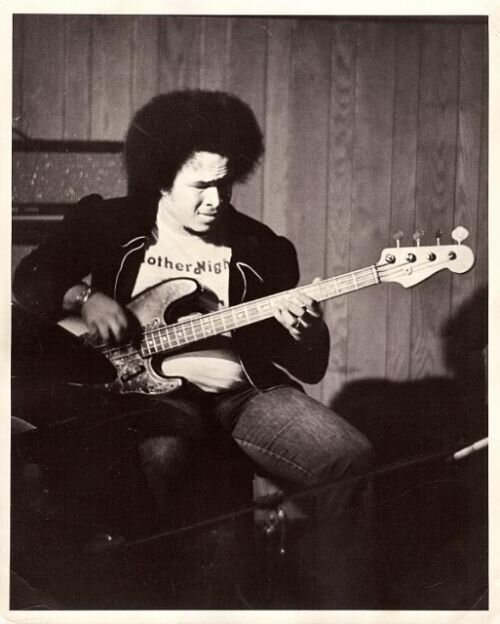
The Know Your Bass Player Interview by Tony Senatore
Recently, one of my Facebook friends, who happens to be a fine bassist, posted that although he started his days with great optimism, after checking out his Facebook feed, he realized that either he was a substandard musician, had made bad decisions, or had any combination thereof. My reaction to his words was quite the opposite. My daily social media habits have reinforced my view that the world is more vapid, vacuous, and morally bereft than I ever imagined. Whether I searched for quality journalism, music, or depictions of humankind at its best, it seemed as if there was none to be found. When creative people are faced with such obstacles, they have choices. They can go with the crowd and follow trends rather than set them or try to uphold all they hold sacred in everything they do, no matter what the cost.
Moreover, they could either remain aloof and unsupportive for fear of losing whatever notoriety they have or be nurturing and try to align themselves with like-minded people who toil away in relative obscurity, unwilling to lower their standards. In my life, when faced with such choices, I have decided on the latter. When I learned of Charles Nagtzaam via my friend Tony Renaud, I was pleased to see that many individuals are still willing to uphold the time-tested tenets of music while resisting the latest fads, and I wanted to be acquainted with him. Charles is the type of bass player that I admire. He doesn’t live in the past. Charles is constantly trying to break new ground on his instrument. What I like most is that, like me, he always tries to move forward while tipping his hat to the great bassists like Anthony Jackson, that inspired him.
Things ranging variously from technology to guns are decidedly non-moral. Whether they are used for good or nefarious purposes is ultimately in the hands of the user. While I have come to despise social media, without it, I would never have learned about the brilliant playing of Charles Nagtzaam. Moreover, if it wasn’t for my friend Tony, there is a good chance that I might never cross paths with him. The lesson is clear. We must stop thinking about ourselves and instead put some effort into others. Social media should not be a place to question your worth. On the contrary, it should be a place to confirm what we are doing right and to help people that we are in a position to help. That said, I would like to introduce Charles to the KYBP family. – Tony Senatore
When and where were you born?
I was born in June 10, 1967 in a small town called Cuijk, near Nijmegen, which is in the Netherlands
Did you study music in college? I am curious as to your educational background, and/or specific teachers who guided you, not limited to only music teachers.
From where I grew up, there was not much of music in Elementary School. My parents discovered I had affinity with music and made me play the wooden flute (recorder?) at the local music school, thinking that learning how to read notes was the most important base. After two years of this (I was around 9 years old), I wanted to play drums or electric guitar, but my parents decided to put me on classical guitar lessons first, most likely to prevent complaints of our neighbors.
In 1979 when I was twelve my dad died, and I was tired of classical etudes and wanted to be able to just play a song. Preferably songs I heard on the radio or on those records which my four-year older brother had. By then I was heavily into all kinds of music. The first time I briefly picked up the bass, it felt like home to me. Due to my classical guitar training, my left hand was already a bit familiar to a wider neck and where the notes were. I didn’t own a bass yet and started playing along with songs on the lower strings of my classical guitar. A year or two later, my mom got me a cheap bass guitar (Kumika P-bass clone) and I started playing with friends from school. That’s when it all started.
After high school I wanted to study at the conservatory and wanted to play (preferably) jazz funk. However, in order to get admitted, I had to play upright bass. After some upright bass lessons with Ruud Hendriks I got admitted to the conservatory of Arnhem to study upright bass with Henk Haverhoek (http://www.henkhaverhoek.nl) a great musician and teacher who has played with many famous jazz musicians.
Two years later the school contracted Lené te Voortwis as the main subject electric bass teacher, and I finally got my first real electric bass guitar lessons. Both Lené and Henk had a huge part in my development. After my graduation I got a lot of wisdom from artists which whom I’ve worked with.
If you studied music in college, did your family support your decision to study music at the college level? Are there any musicians in your family?
My dad used to sing in the church choir. My mom (85) was a housewife and used to sing all the time. When I was in college she was already a widow and did everything she could to make ends meet. She somehow found the strength to carry on, take a part time job and found a way to give us everything we needed. She came from a large single parent family too and, just after WWII, only her brothers could study due to financial reasons. So, she never got the chance to study and was determined to give her children the chance to be able to become anything they wanted. She was very supportive in my decision to make a living from music. I only had to get my high school diploma first, which was kind of a struggle for me after I took up the bass guitar. She had to lock it away in a closet at times in order to make me finish high school first.
My brother plays drums but isn’t a professional musician. My older cousin taught me the first barre chords on guitar but is also not a professional musician.
Do you make your entire living playing music, either live or in the studio, or do you have an alternate source of income?
I make my entire living with music. I’m still playing a lot live, and get the occasional calls for a studio gig. I’m also teaching bass and band-coaching at the conservatory in Arnhem (https://www.artez.nl/en/courses/bachelor/jazz-pop-arnhem) and at Rockacademie in Tilburg (https://rockacademie.nl). This mixed practice is enough to make the ends meet. I have two daughters of 18 and 17 years old and they’re somewhat at the start of their college education.
Who influenced you coming up, regarding bassists that caught your ear?
Verdine White, Bernard Edwards and Leon F Sylvers III were a huge influence. I’ve always loved soul music! When I picked up the bass, Mark King was conquering the charts with Level 42. So that was a huge influence at first. My brother pointed out Stanley Clarke and bought his first two albums. And I got more and more into jazz rock and serious about music. Marcus Miler, Anthony Jackson and Jaco Pastorius were the main influences during the time before I got admitted into the conservatory.
But also so many other great bass players like Nathan East, Louis Johnson and Will Lee caught my attention. Marcus, Anthony and Jaco however would really “make my jaw drop” more than a few times whenever I heard something “new” of them. And I never stopped listening to them ever since. There was no Spotify neither CD’s, so discovering new music was really a thing you couldn’t do by surfing on the internet. You were relying on good friends who bought a lot of records. And you had to buy some yourself. And of course, we had Maxwell and TDK, which made it a little cheaper for a music freak like me.
During my study James Jamerson, John Patitucci, Pino Palladino and Francis Rocco Prestia were very much of influence, and of course upright bass players Ray Brown, Niels Henning Ørsted Pedersen, Paul Chambers, Scott LaFaro. And I have to mention Gary Willis and Jeff Andrews.
When you listen today, do your early bass influences measure up to your perceptions of them when you were young?
I think my perception of how to experience those early influences changed. At a young age one is full of questions like “how do they do it,” “how do they get that sound,” “what’s happening harmonically/rhythmically” etc. As you grow older and understand that there are no real secrets in music, and that it’s also hard work and understanding of theory, analyzing, studying and more, a lot of those early questions might have been answered. But each one of those early influences are very authentic players with a signature sound. Something one only gets out of that unique individual person in combination with a certain instrument. And that still holds up to me with each and every one of them, while in the meantime I’m still searching for my own signature sound. That might be a downside of transcribing and analyzing too much of almost everything.
Are there any bass players or musicians in general that inspire you today?
For sure! It’s amazing to see how some newer players still grow into “their thing” which appears to be another new way of approaching the instrument. Like Victor Wooten, MonoNeon is a second to none authentic player, as is Thundercat. I also like bassists Michael League and Joe Dart who are influenced by stuff from the era I grew up in (mid 70’s), giving it a fresh new formula. Also Hadrien Feraud and Dario Deidda are very inspiring bassists. And, of course, Pino Palladino.
I am sure that like me, you have many basses. I have about forty, but I could exist with only my 1973 P bass if I had to. What bass that you currently own is your main instrument that you would never part?
I have enough basses, although not forty. I have to say my STENBACK FIVE will probably be that bass. Amazing response, great tone. A five string that feels like a four string somehow. Well balanced. When I bought it, it probably hadn’t been played that much, and the bass really had to come alive through playing. After two months it definitely did, a day and night difference.
If it wasn’t for the need of a five string, I could exist with only my 1972 Fender Jazz Bass, too.
Your YouTube channel has a vast array of very accurate transcriptions of some of the greatest bass lines ever recorded. Of all of the transcriptions that you have done, which was the most difficult?
Thanks for the compliment. I try to be as accurate as possible. There are a few of those videos which I had to do in more than one take. “Voice” by Hiromi was three takes, “M&M studio” had a cut right before the solo, which I still can’t play as accurate as the original. “You Got It!”, “Some Sharks” and “Island Magic” were all a one straight take eventually, but that doesn’t mean that those were less difficult. It has to do with focus, staying relaxed and, of course preparation.
Also, “difficult” evolves to “getting a little bit more comfortable” every day with a good practice routine. I wasn’t able to feel odd meters in an even flow yet, for instance. After transcribing and practicing it, it just gets more fluid because it starts to feel natural and balanced. You just have to put in the hours of practice, which are harder to find at a later age. But I’ve still managed to put in the work to do it, so far. Difficulties come in all areas. Even a “simple” 4/4 groove has its difficulties if you don’t understand the feel or the pocket. So it’s not only a matter of a lot of notes or odd meters. Switching from pick to fingerstyle playing could easily call for hours of practice. So Leon Sylvers’s bassline of “Here I Am” by Dynasty also took some time to get a little more comfortable with.
Can you recommend any specific method books that have helped you to become the bassist that you are today?
When I studied, I probably checked out anything I could get my hands on. “Standing in the Shadows of Motown”, “The Funkmasters”, “What Duck Done”, “Sitting in with Tower of Power”, “Modern Electric Bass” & Oscar Stagnaro’s “Latin Bass Bible” of the more style-method books. As for improvisation, David Baker’s “Bebop Era”, Adelhard Roidinger’s “Jazz improvisation & pentatonics”, “Charlie Parker Omnibook”, “John Coltrane Omnibook”, Hein van de Geyn’s “Comprehensive Bass Method” were all great books to discover and get ideas from. And there’s so many more of which I probably took a few excerpts from in my daily study routine.
As a recommendation to upcoming players I would say: explore the stuff that moves you yourself first. Whenever I hear a great melody with a great chord sequence, I want to know what that is. And not by ONLY looking up a YouTube tutorial or (maybe even worse) a quickly written TAB sheet. The same with basslines, drum rudiments or odd time signatures. When I hear something great, I’ll bury myself between the speakers or headphone until I exactly know what it is that moves me. Train your ears and carefully listen to what you really hear, not taken all of those videos and websites as an instant truth. The blessing of having all the acces to all the material with just one click can also set you on a detour when watching an incorrect explanation.
When I went back to school from 2008 to 2017, my goal was to teach history or social studies at either a public or a charter school. This changed when I consulted with some of my friends who have been educators for many years. They informed me that changes in the education system, and the advent of Common Core standards pushed them into early retirement, and that if I had any ideas about teaching with my own style in my effort to change the world one student at a time, I should reconsider teaching.
In a similar way, I feel the same obligation to be honest which young musicians that often ask for my advice regarding a career in music. It is more difficult to survive playing music today than in past eras. Reality is not negativity, and I feel an obligation to young musicians to make this clear. If you could offer one piece of advice to aspiring bassists, what would you tell them?
At Rockacademie, where I also teach, each student is forced to choose a learning path from the perspective of a mixed professional practice. So, next to a skill (main subject) (vocals, bass, guitar etc) one has to choose for either “session musician”, “artist”, “audio engineer”, “skills- & band coach (education)” and “business manager”.
At Artez Jazz & Pop, we stimulate all students to be as artistic and authentic as possible (more like the “artist” direction), which makes it probably harder to get instant work that pays the bills once a student graduates. Some students rather do a different profession alongside their career so they can carry on with their own intrinsic creativity without any concession to commercial succes.
Both schools have alumni who are really successful, so I would advise a student to really look around, check out each school’s curriculum to know what appears to be the best thing for your own growth. And by this I most certainly don’t mean “the easiest path to making money”. One should know that, if you’re in it for the money, it will never pay off. I believe Wynton Marsalis said something like: “You really have to be obsessed with making music, otherwise it’s barely impossible to put in the amount of work you need to make it a successful path”. Or Woody Shaw: “So you’ve tried to play the trumpet but didn’t have the talent? Really? Well, start practicing three hours a day for one year, come back, and then we’ll talk about talent again”.
Since you really have to love what you do, it’s probably a good idea to have a wider palette of options, but only if those options are almost equally joyful as playing your instrument. And with some of these options you might just want to try it first.
Keep an open mind and if a different direction doesn’t get in the way of your development as a musician: do it. It’s better to quit after trying than wondering how it could have worked out a few years later when that ship has already sailed and chances have passed. You’ll probably never have the same amount of time to explore other options. If you still want to make a living only through making music, though: be ready to sacrifice and put in the hours. And remember that success should always be measured by the things you have had to give up for it.
Charles Nagtzaam Renders Anthony Jackson’s classic Chaka Khan bass passage “Sleep On It”
Charles Nagtzaam Website : https://charlesnagtzaam.wordpress.com/
Charles Nagtzaam YouTube https://youtube.com/channel/UCZ-rbZYrz45_WgbqAaosV7w
Photos by Frank Boeigen, Kathie Danneels
